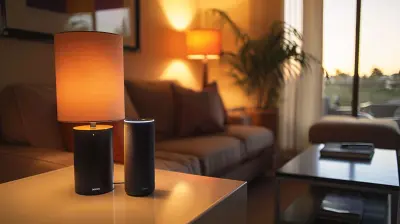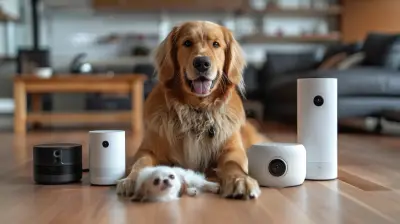Smart Home Integration: Apple HomeKit vs. Google Home
14 April 2025
Ah, the dream of a smart home—a utopia where lights dim at your command, thermostats adjust magically, and you can scream at your virtual assistant instead of your family when the Wi-Fi inevitably dies. But before you turn your humble abode into a futuristic fortress, there's one big decision to make: Apple HomeKit or Google Home?
If you're here, you’re probably tangled in the web of smart home ecosystems, wondering which overlord deserves your loyalty. Don’t worry; we’re about to break it down—sarcastically, yet informatively. Sit back, grab your overpriced smart coffee mug, and let’s get into it.
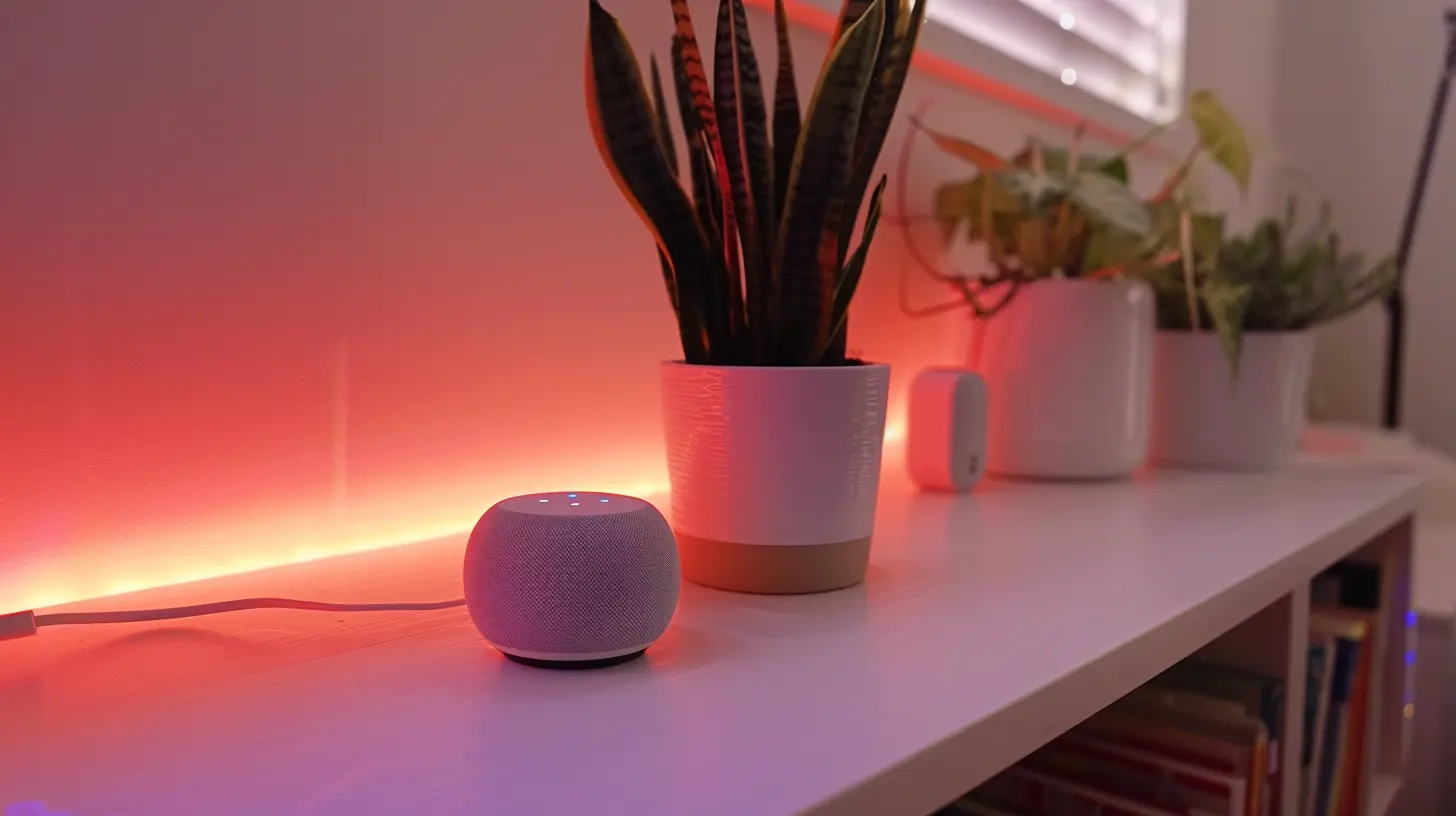
The Ecosystem Wars: Walled Garden vs. Open Playground
Apple HomeKit: The VIP Club That Charges for Entry
Apple loves exclusivity. Want a seamless smart home experience? Great—just make sure every single device you own is Apple-approved. HomeKit is like one of those snobby VIP clubs: "Oh, you have an Android phone? Sorry, you're not on the list."HomeKit devices are meticulously curated, which means fewer compatibility headaches. But it also means manufacturers have to jump through fiery hoops to get Apple’s blessing. This makes HomeKit-compatible products more limited and expensive. But on the plus side, they work ridiculously well together.
If you're already neck-deep in the Apple ecosystem—using an iPhone, iPad, Mac, Apple Watch, and probably an AirTag to track your sanity—HomeKit is a natural extension. And let's be real, Apple users LOVE when things "just work."
Google Home: The Friendly Neighborhood Hangout
Google Home, on the other hand, is like that cool, open-minded friend who gets along with everyone. Whether you're rocking an Android or an iPhone, Google welcomes you with open arms—well, as long as you’re okay with giving all your data to the all-seeing Google overlords.Google's smart home ecosystem integrates with WAY more third-party devices, making it far more accessible and affordable. No need for manufacturers to pass an elite entry exam—if it works with Google, it’s in. This means more options for you and a significantly lighter wallet burden.
But here’s the catch: with great freedom comes a slightly messier experience. Sometimes, things don’t click perfectly, and you may find yourself yelling, "Hey Google, turn on the living room lights!" only to be met with, "Sorry, I don’t understand." Ah, the joys of technology. 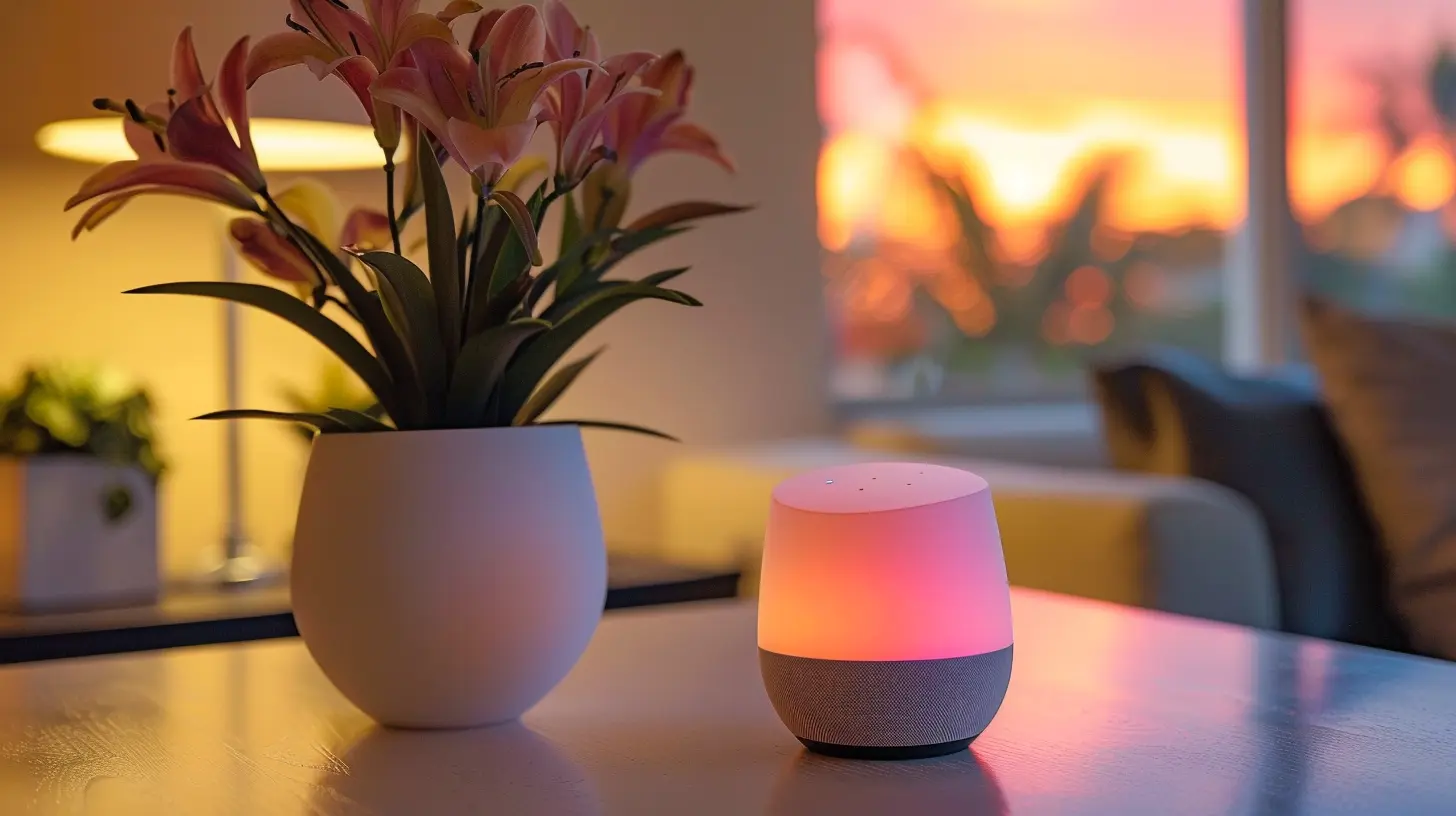
Setup & Ease of Use: User-Friendly or User-Infuriating?
Apple HomeKit: "Let Me Hold Your Hand" Setup
Setting up HomeKit is about as effortless as sipping overpriced oat milk lattes. Open the Home app, scan a HomeKit code, and boom—your smart device is ready to obey.And because Apple is obsessed with privacy and security (cough unlike others cough), everything runs through end-to-end encryption. Translation: It’s harder for hackers to turn your smart fridge into Skynet.
But—here’s the kicker—HomeKit requires either an Apple HomePod, an iPad (that never leaves the house), or an Apple TV as a hub to enable remote access. So yeah, you'll probably need to buy yet another Apple device. Shocking, right?
Google Home: A Rollercoaster of Simplicity and Chaos
Google’s setup process varies wildly depending on the brand of the device. Sometimes, it's as easy as tapping the "Add Device" button in the Google Home app. Other times, you're forced into a scavenger hunt across multiple apps, firmware updates, and acceptance of your fate as an unpaid tech support agent.But once everything is up and running, Google’s hands-off approach actually makes things easier for customization. Unlike HomeKit, which thrives on "minimalism and moderation" (a.k.a. forcing you to conform), Google lets you mix and match devices like a mad scientist. 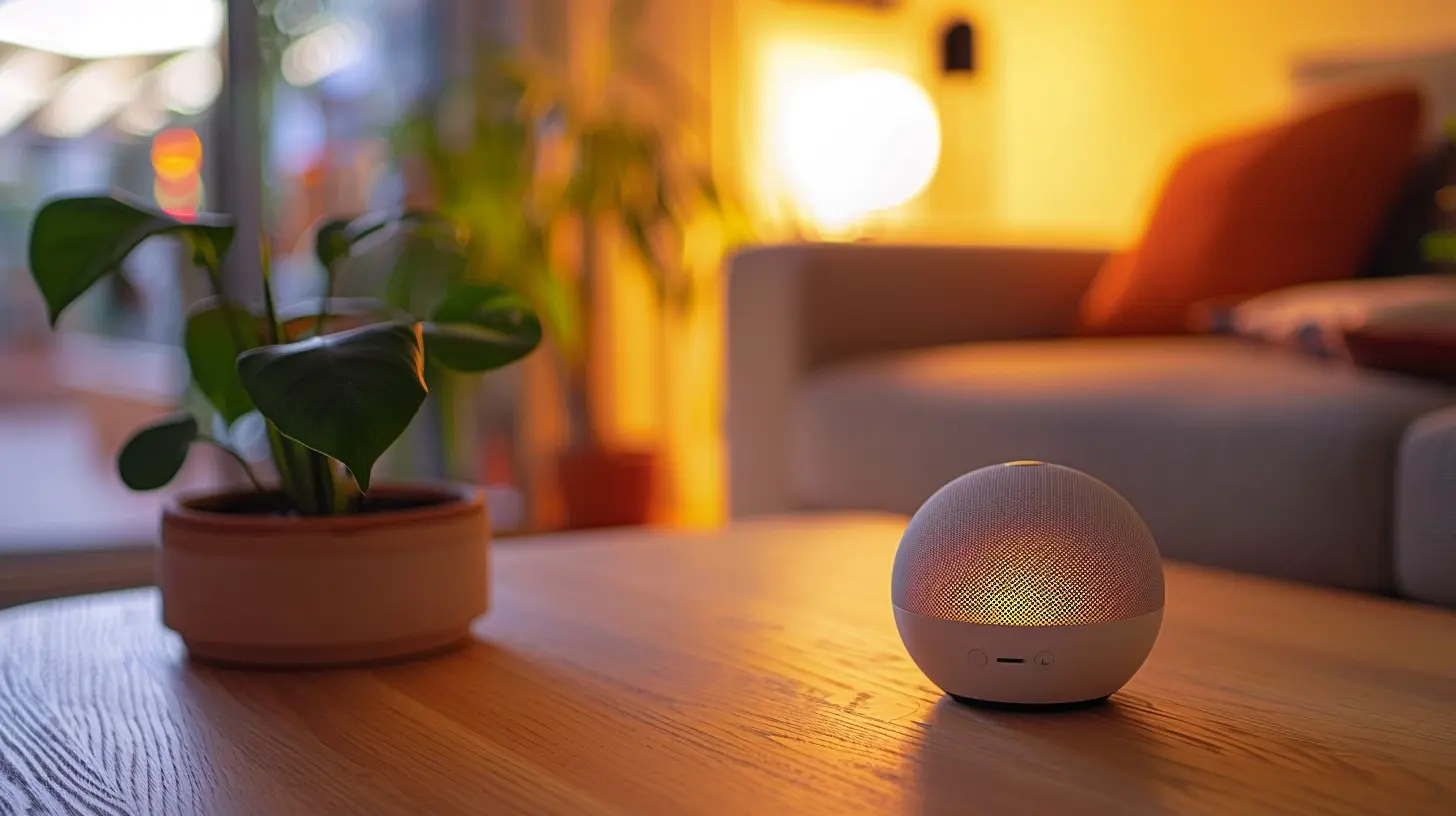
Device Compatibility: Will Your Gadgets Get Along?
| Feature | Apple HomeKit | Google Home ||---------|-------------|-------------|
| Works with iPhone | ✔️ | ✔️ |
| Works with Android | ❌ | ✔️ |
| Device Variety | Limited | Extensive |
| Smart Speakers | HomePod Mini | Nest Audio, Nest Hub |
| Third-Party Support | Strict & Exclusive | Open & Welcoming |
| Voice Assistant | Siri (Eh...) | Google Assistant (Actually Smart) |
Apple HomeKit: Your Elite, But Limited, Squad
When HomeKit supports a device, you can bet it's polished, secure, and smooth as butter. However, the number of compatible smart devices is pitifully small compared to Google. If your dream smart home involvesrandom off-brand smart bulbs from Amazon, good luck.
And Siri? Well... let’s just say she tries really hard, but she's that one friend who always misses the joke.
Google Home: The More, The Messier
Google Home plays well with thousands of smart home gadgets. Your Philips Hue bulbs, your Ring doorbells, your coffee machine that probably spies on you—it all works.The only downside? With great variety comes occasional chaos. Some devices play nice, others act like rebellious teens, and you’ll spend some nights debugging instead of watching Netflix. 
Voice Assistants: Battle of the Bots
Siri: The Honor Student Who Struggles in Real Life
Siri is polite, functional, and occasionally brilliant. But let’s be honest—if given a pop quiz against Google Assistant, she’d flunk.She’s great at basic commands ("Turn off the lights"), but the moment you ask her anything complex, she panics. Asking Siri to control your smart home sometimes feels like trying to explain quantum physics to a puppy.
Google Assistant: The AI Overlord We Secretly Fear
Google Assistant is just smarter. She understands context, handles multiple commands impressively, and doesn’t give you that awkward "I don’t know what you mean" silence.Want your lights, thermostat, and morning playlist set with one command? Google’s got you. Siri, meanwhile, needs you to spell things out like she’s a toddler learning her ABCs.
Price & Value: Who’s Stealing Your Wallet?
Apple HomeKit: Pay for Perfection
If you’ve ever bought an Apple product, you already know the drill. HomeKit-compatible devices tend to cost more, but you get that sweet, smooth Apple experience.The requirement for an Apple Home Hub (HomePod Mini, Apple TV, or an iPad) also means additional costs—because who doesn’t love spending more money on Apple?
Google Home: More Affordable, But Less Polished
Google Home devices and compatible accessories are generally cheaper and easier to find. But before you go celebrating, remember that lower costs sometimes come at the expense of inconsistencies and minor frustrations.Still, if you're not trying to sell a kidney to afford your smart home, Google's ecosystem is the more cost-effective choice.
Final Verdict: Which One Should You Choose?
So, Apple HomeKit or Google Home? Honestly, it depends on how much pain you’re willing to endure.- Pick Apple HomeKit if: You’re a loyal Apple user, appreciate top-tier security, and enjoy the satisfaction of everything working flawlessly—at the cost of choice and affordability.
- Pick Google Home if: You want variety, don’t mind occasional hiccups, and prefer a voice assistant that actually understands you.
At the end of the day, both platforms have their quirks. Whether you live in Apple’s walled garden or roam free in Google’s smart playground, just remember one thing: Your smart home will never be perfect—but yelling at a robot sure is fun.
all images in this post were generated using AI tools
Category:
Home AutomationAuthor:

Jerry Graham
Discussion
rate this article
6 comments
Henry McKay
Embrace the future! Smart home tech empowers your life with convenience and innovation!
May 5, 2025 at 11:39 AM

Jerry Graham
Absolutely! Embracing smart home tech indeed enhances convenience and innovation, making everyday life simpler and more efficient.
Sage Cruz
Choosing between Apple and Google for your smart home? It's like picking your favorite ice cream flavor!
April 22, 2025 at 11:52 AM

Jerry Graham
Absolutely! Both offer unique features and benefits, so it really comes down to personal preference and what fits your needs best.
Kane Bennett
Embrace the future of living! Choosing between Apple HomeKit and Google Home isn't just about tech; it's about creating a smarter, more connected home experience!
April 21, 2025 at 7:33 PM

Jerry Graham
Thank you! Embracing smart home technology truly enhances our living experience, and both Apple HomeKit and Google Home offer unique advantages to consider.
Allison Webster
Great comparison! Both Apple HomeKit and Google Home offer unique benefits for smart home integration. It's exciting to see how these platforms evolve, allowing us to create more connected and convenient living spaces. Thanks for sharing!
April 18, 2025 at 4:46 AM

Jerry Graham
Thank you! I'm glad you enjoyed the comparison. It's fascinating to see how both platforms continue to innovate and enhance our smart home experiences!
Lisa Spencer
Decisions, decisions! Choose your favorite digital overlord!
April 17, 2025 at 10:37 AM

Jerry Graham
Both have their strengths! It ultimately depends on your ecosystem preferences and devices.
Raina Ruiz
Great insights! Clear comparison for smart home enthusiasts!
April 14, 2025 at 11:08 AM

Jerry Graham
Thank you! I'm glad you found the comparison helpful!


